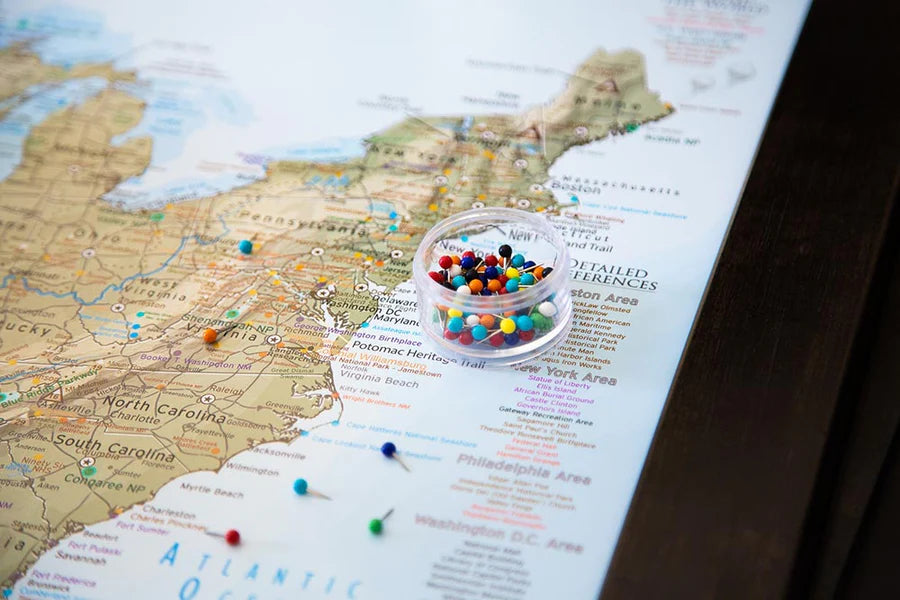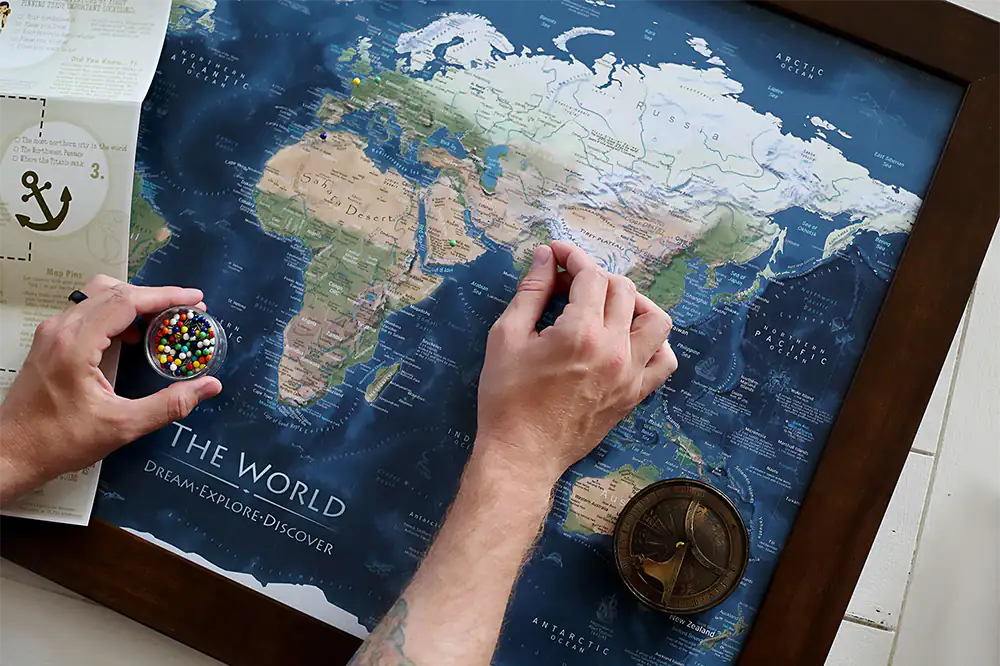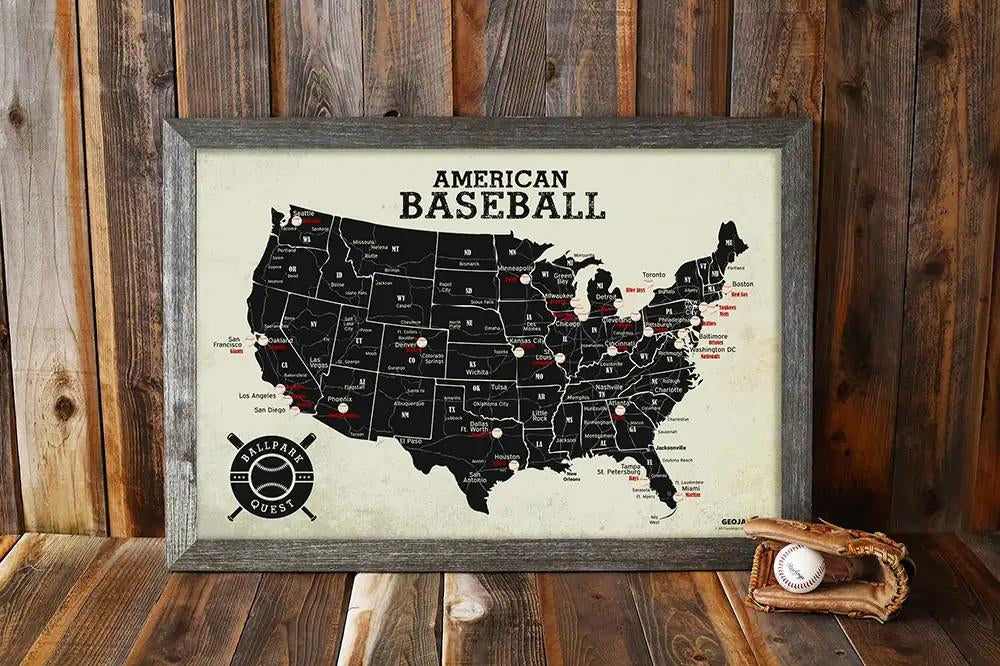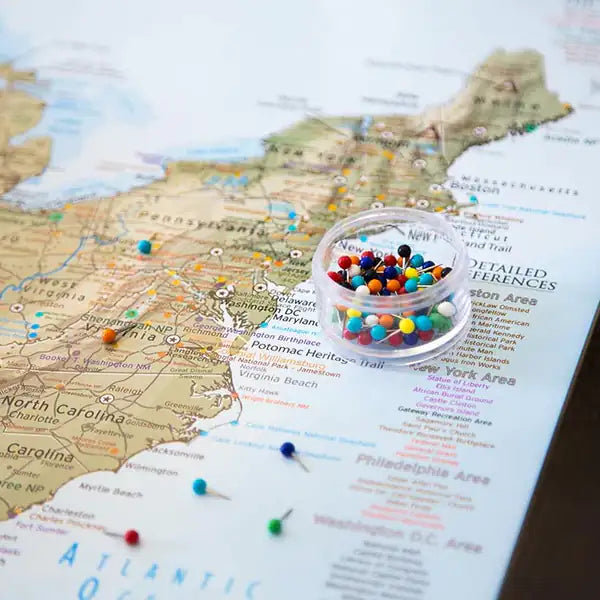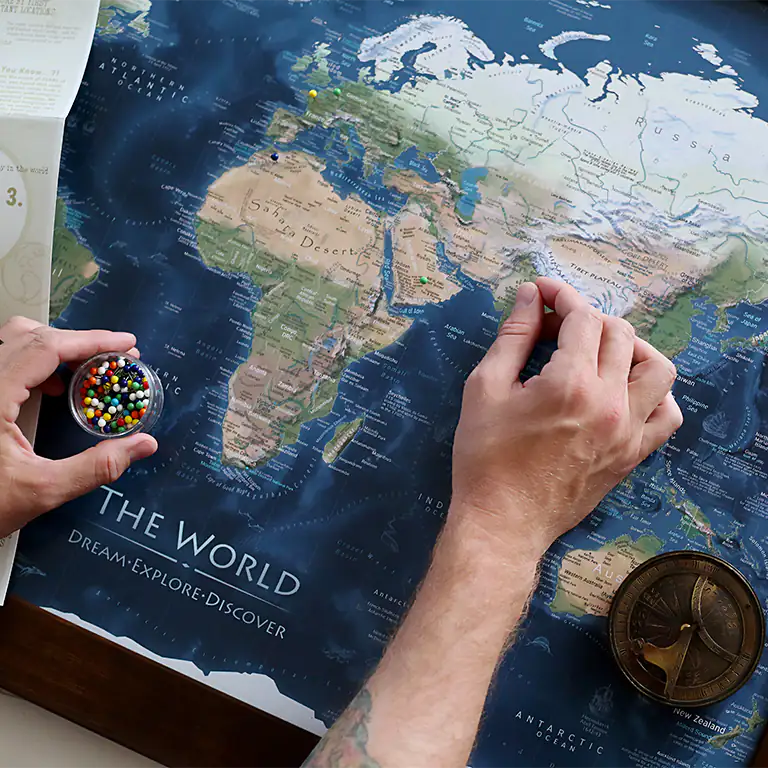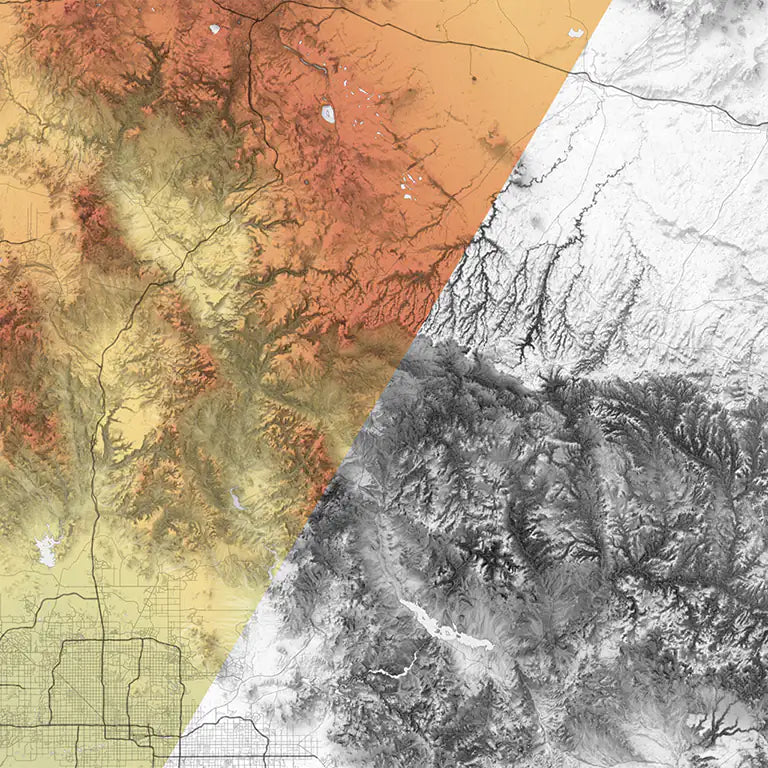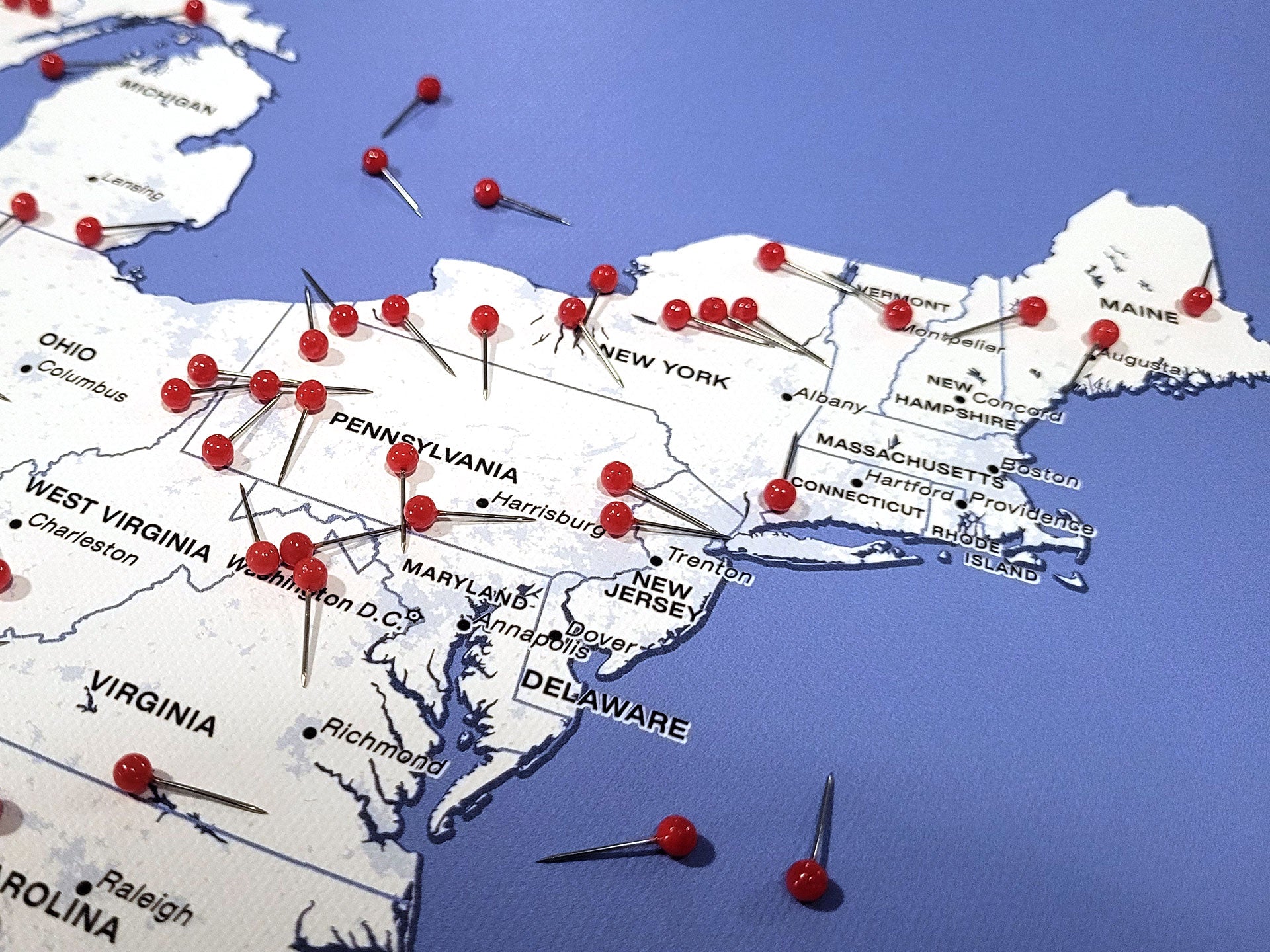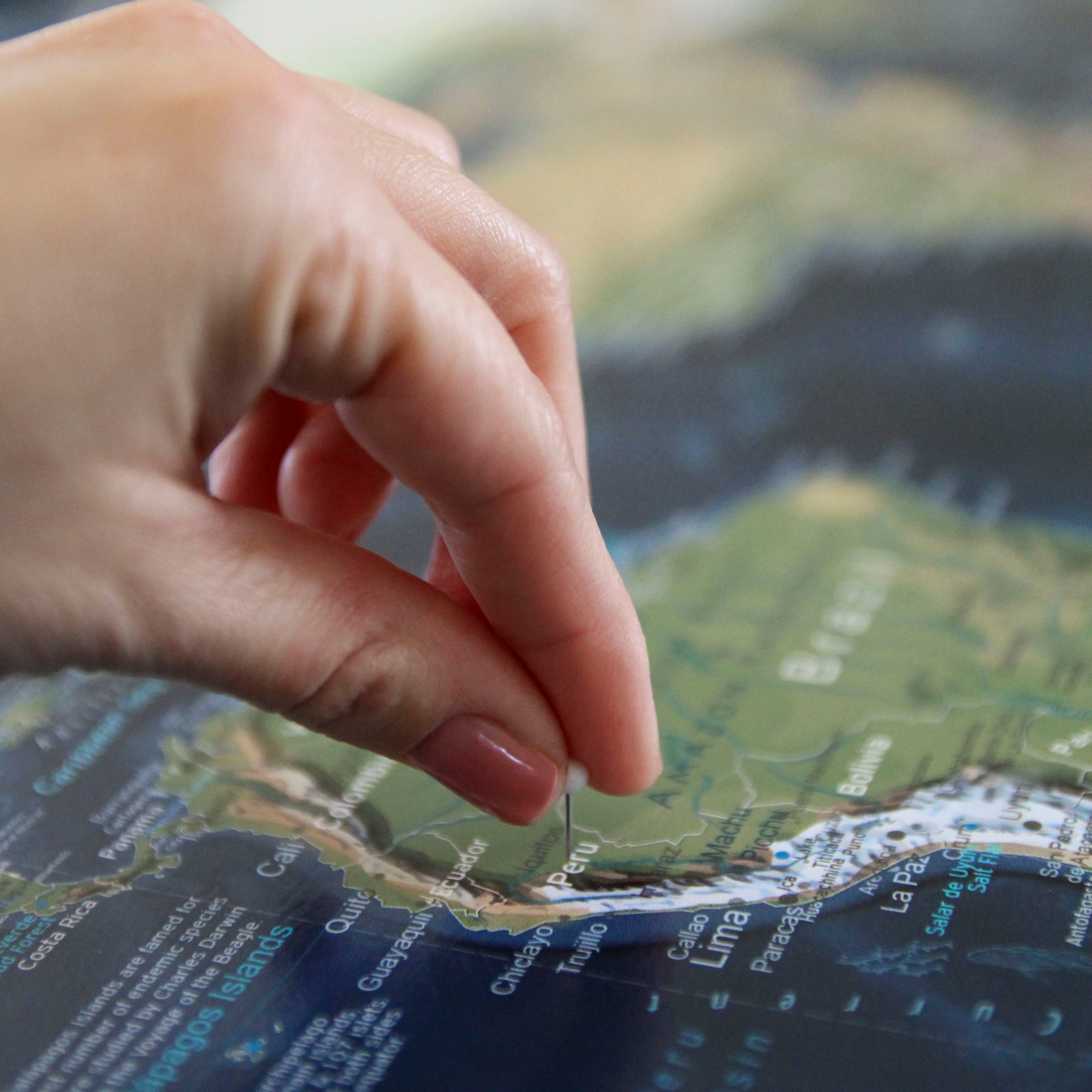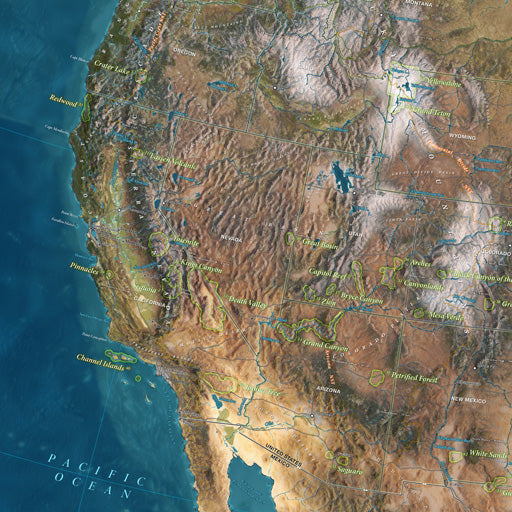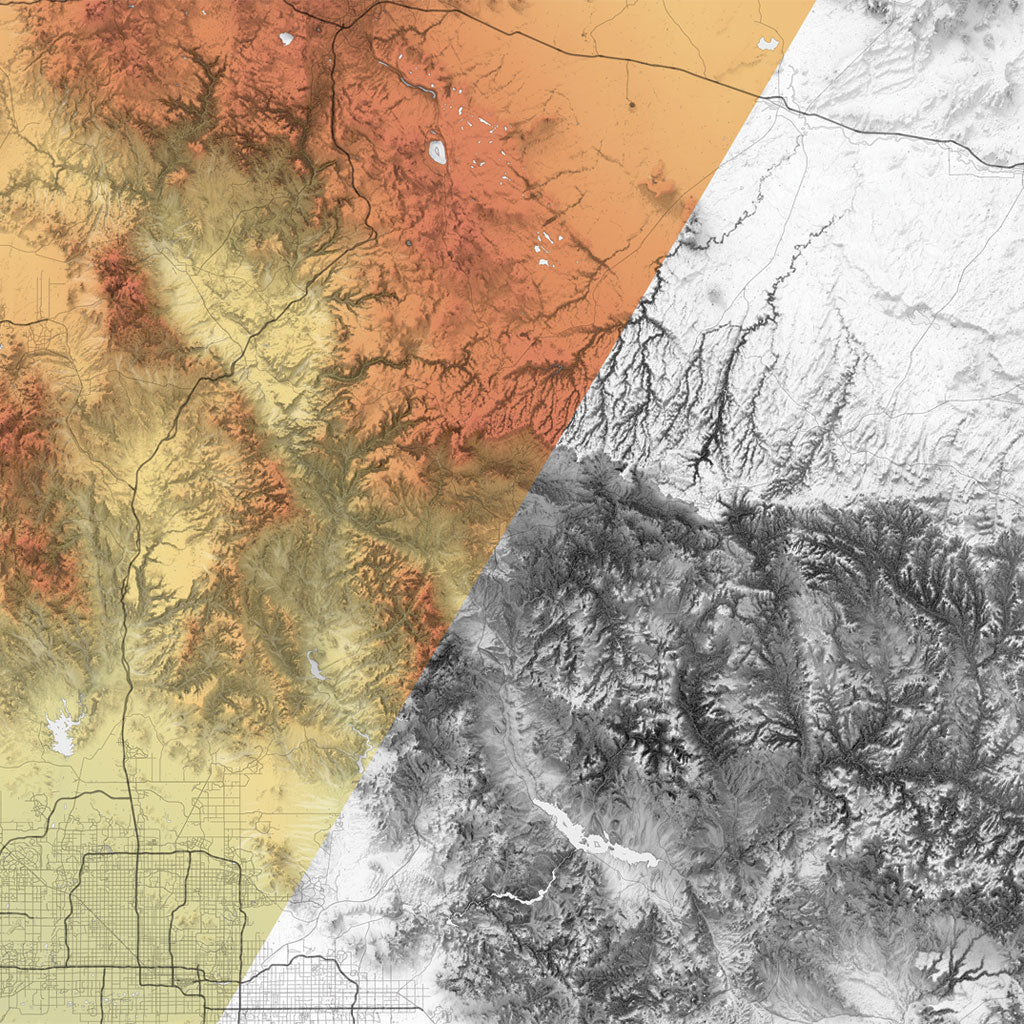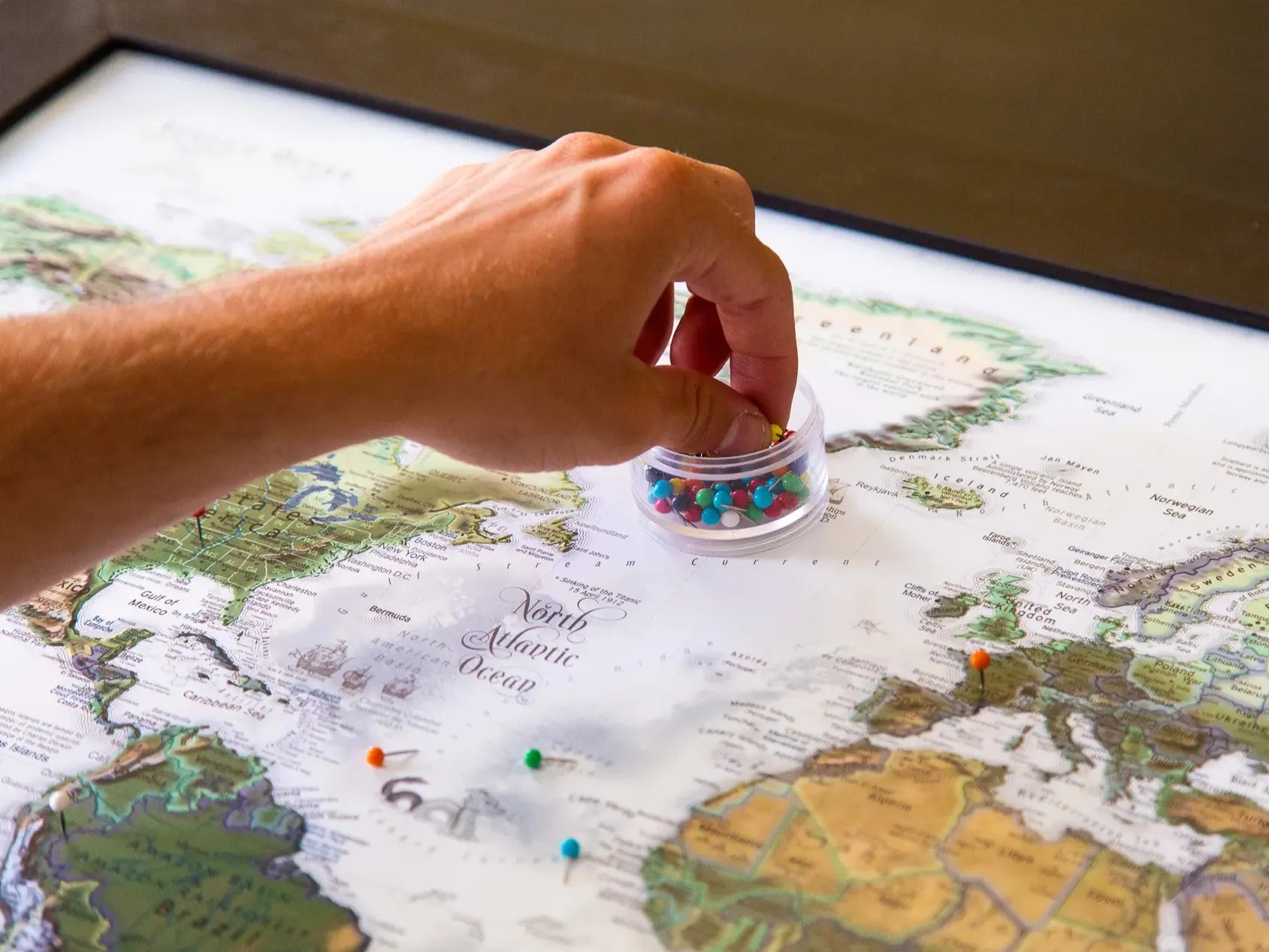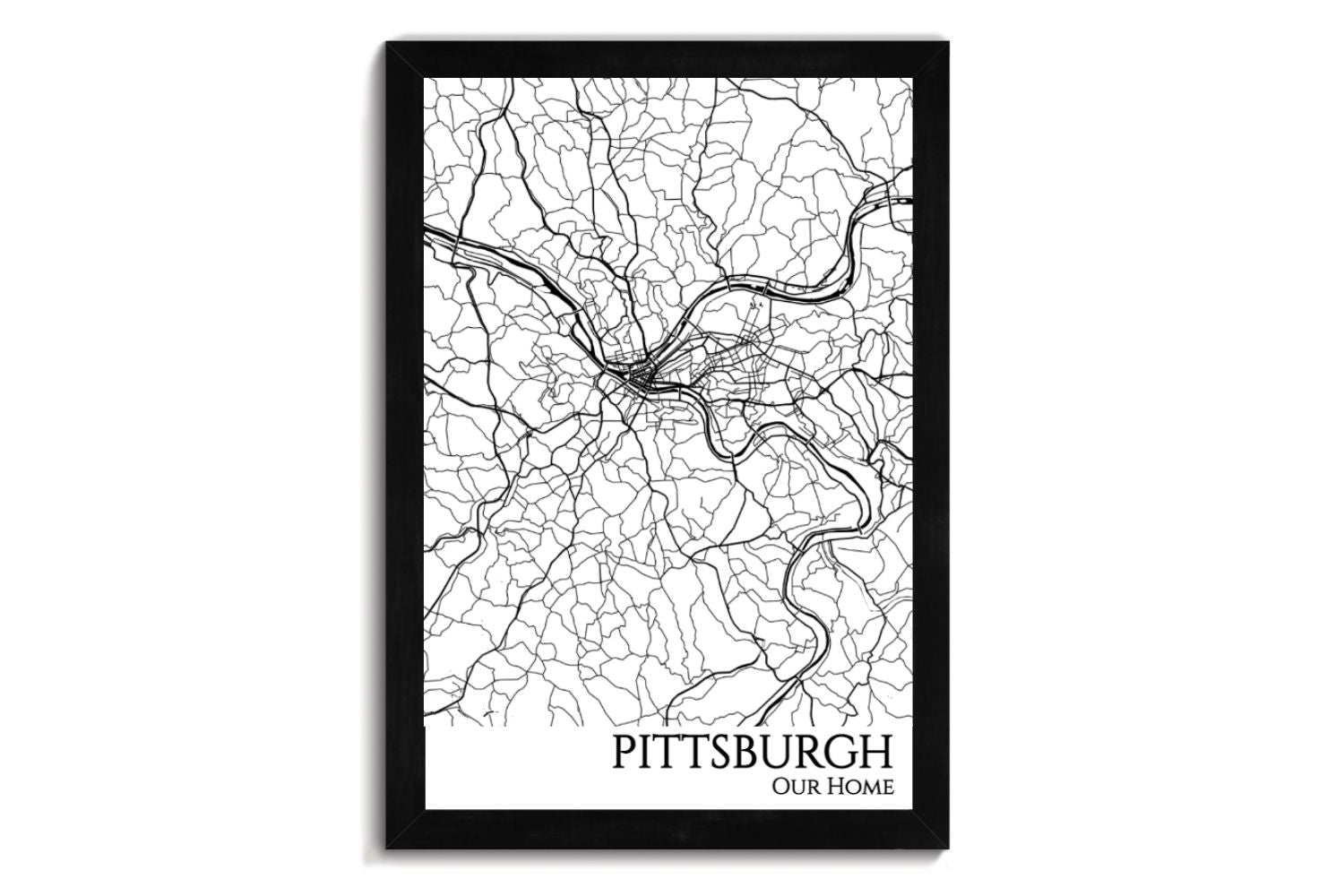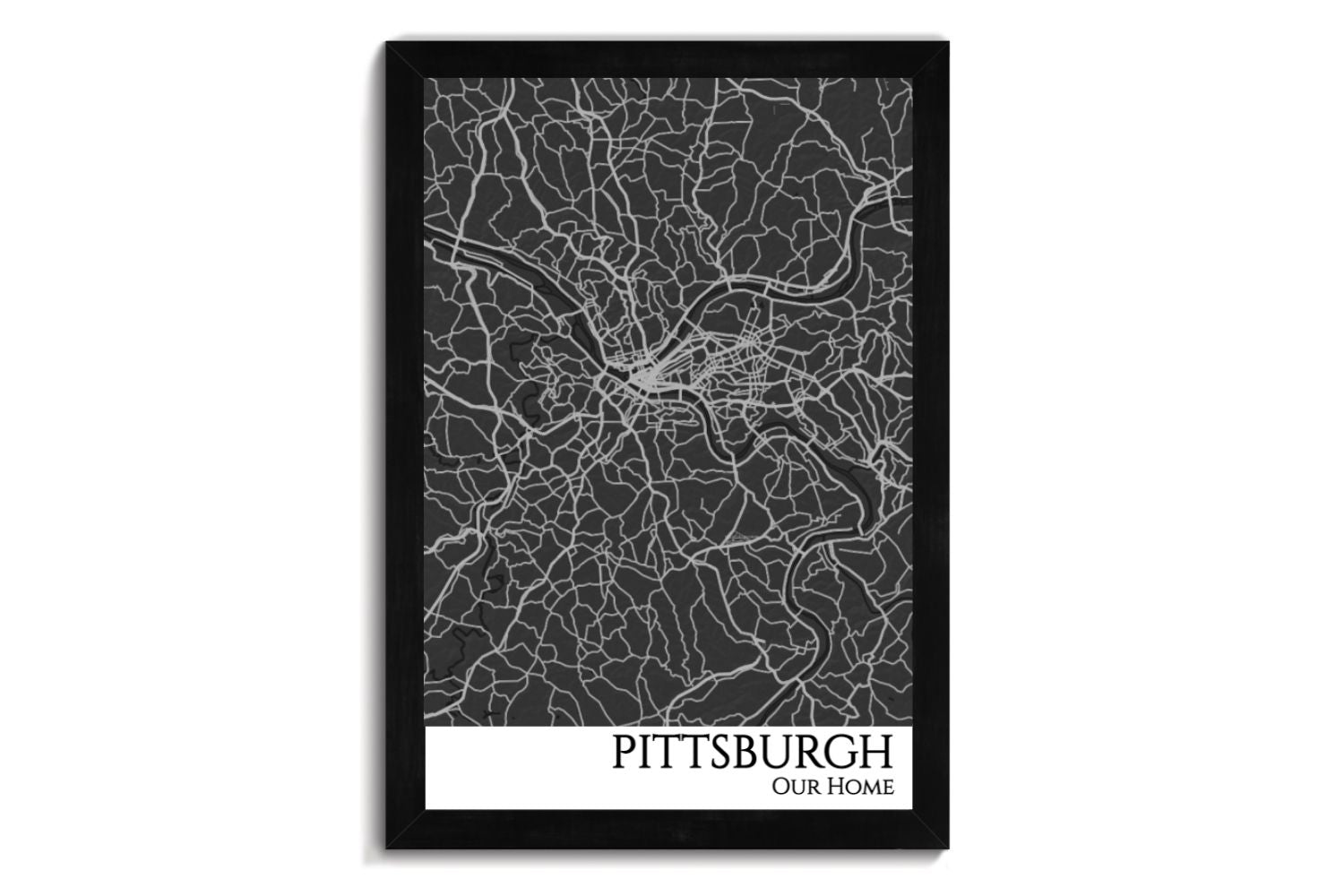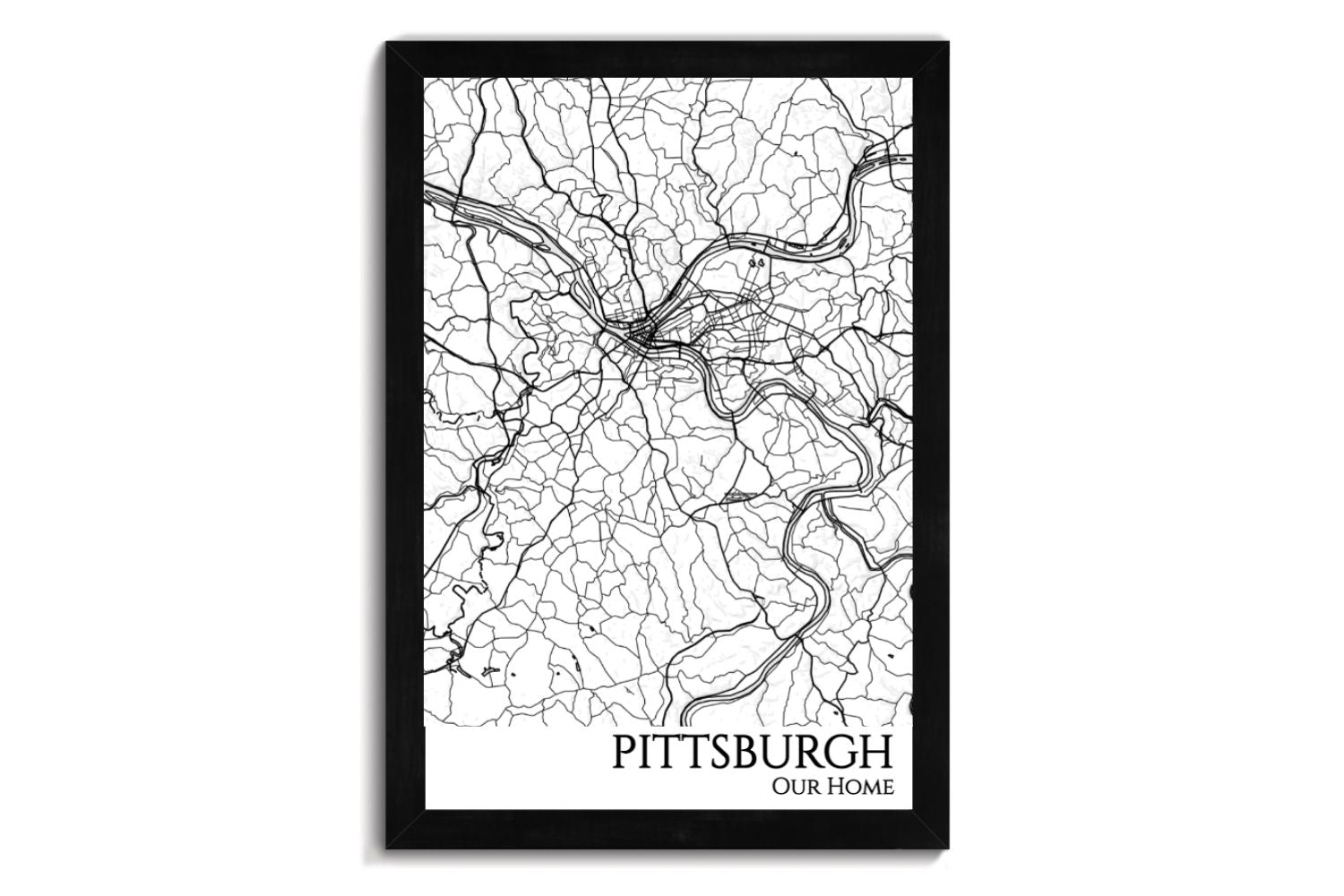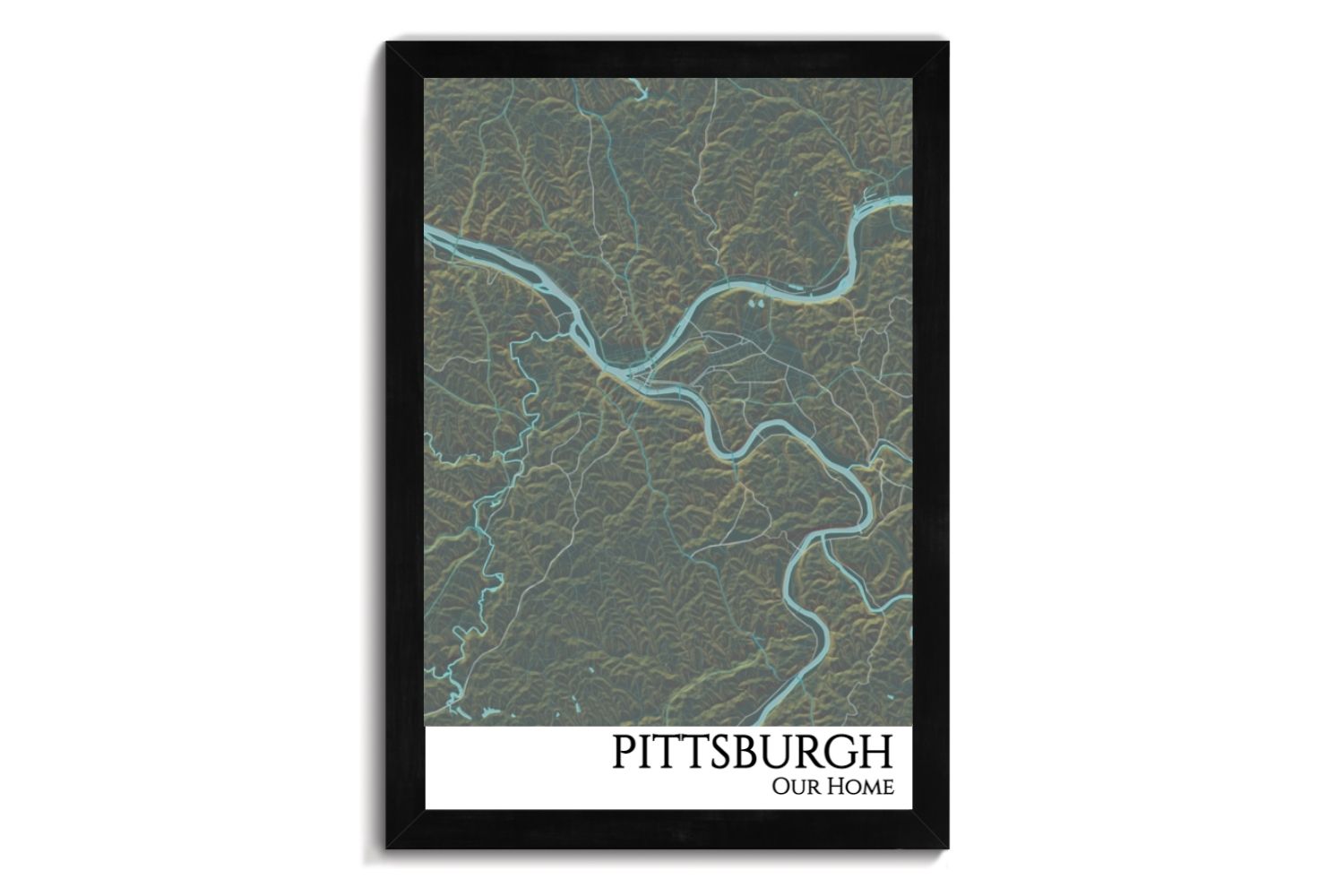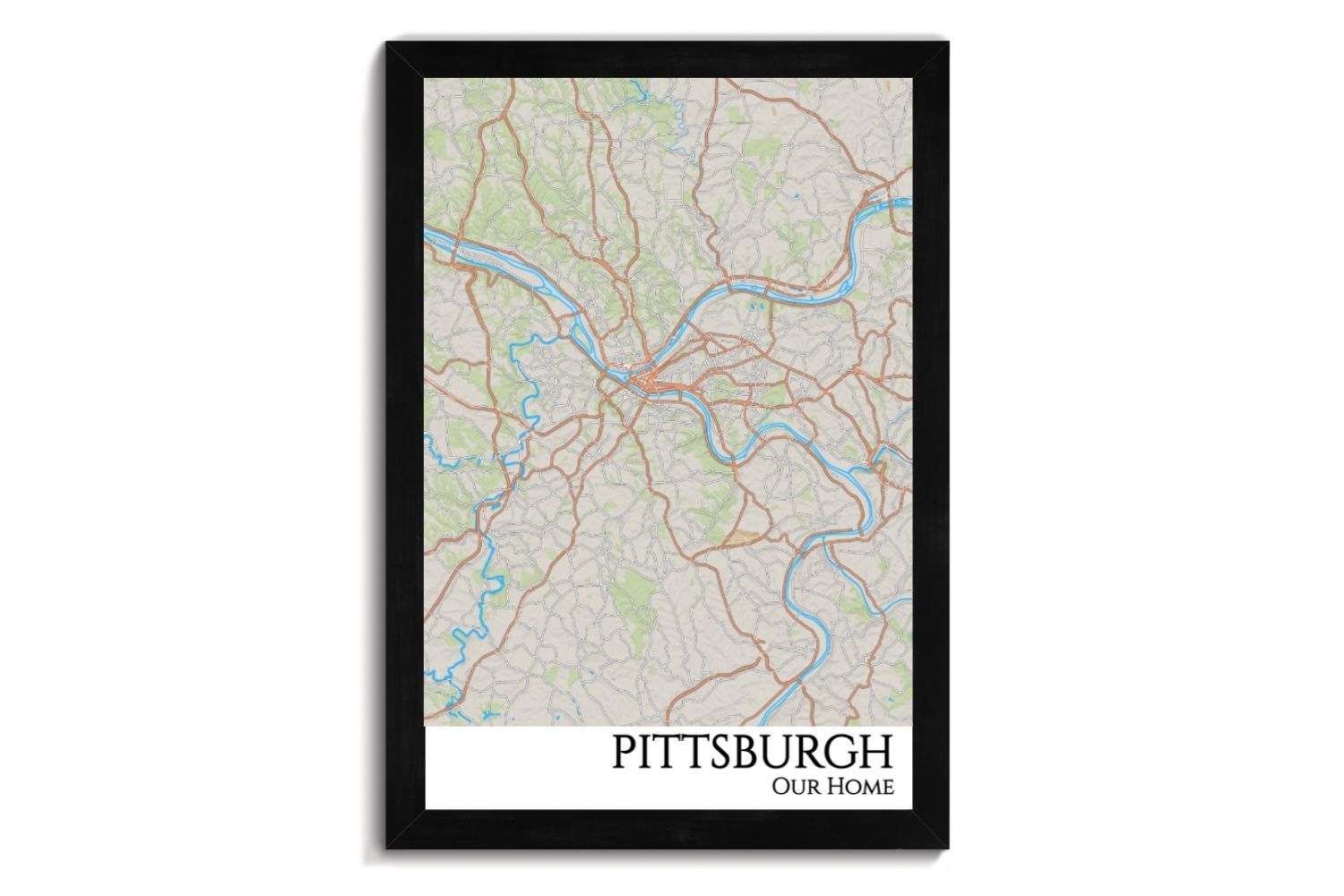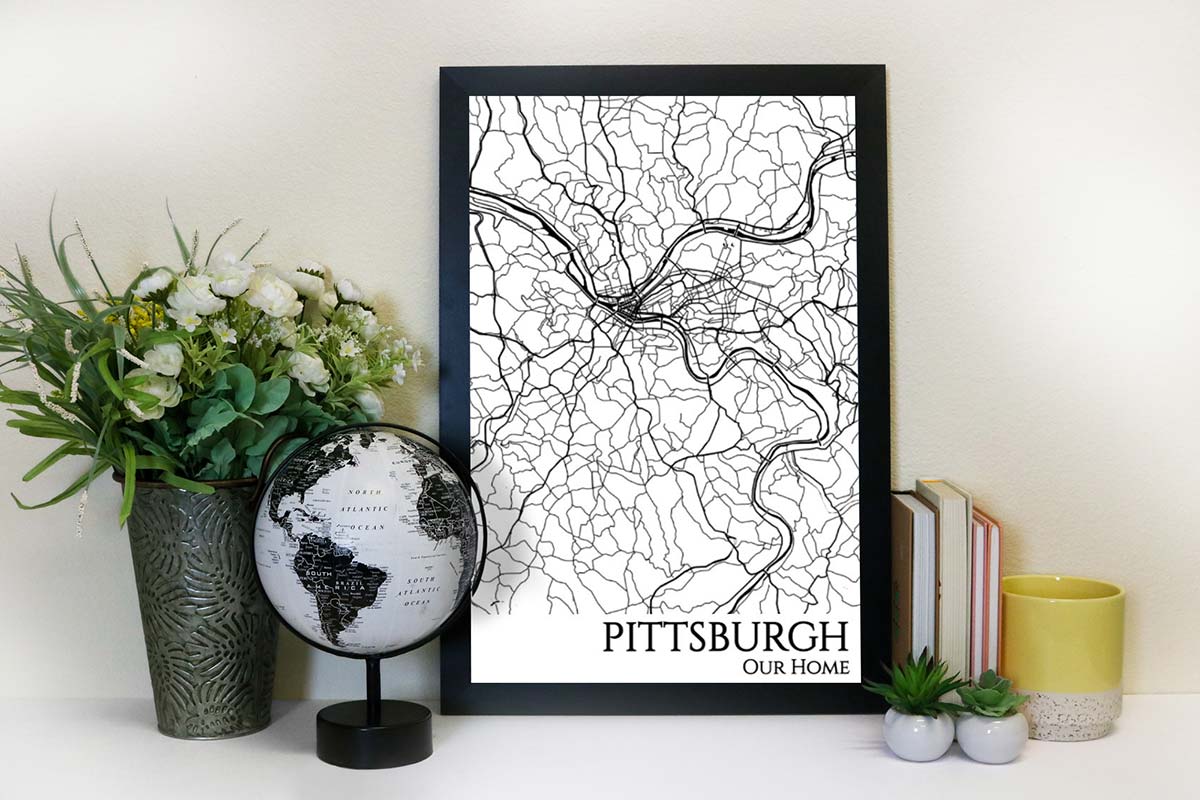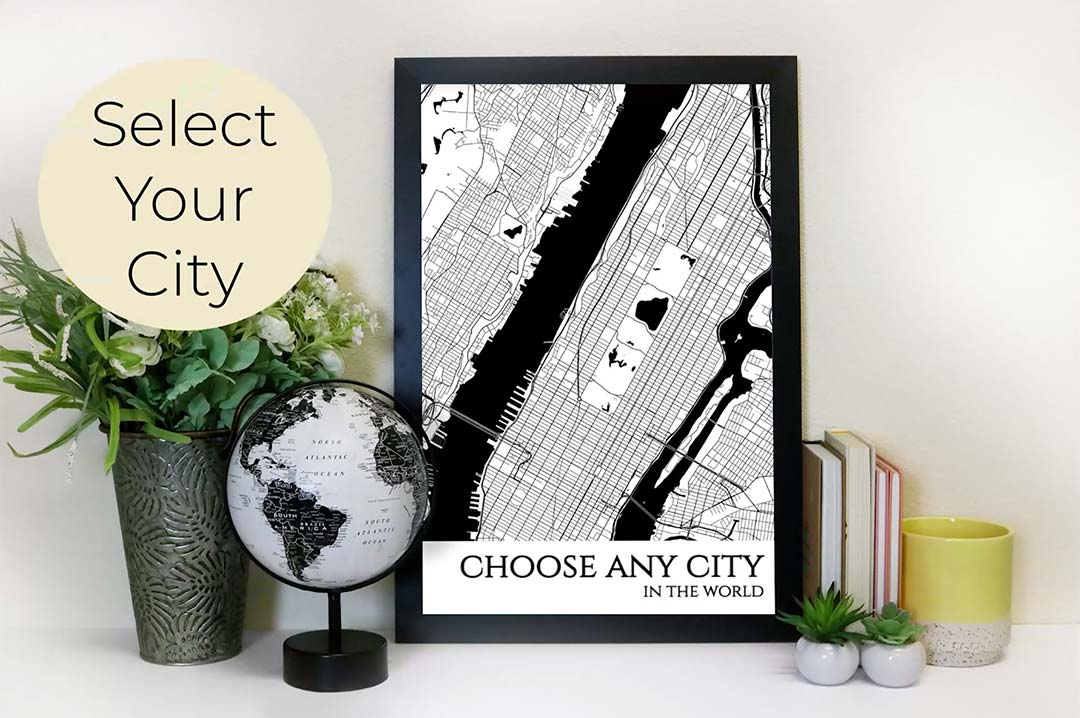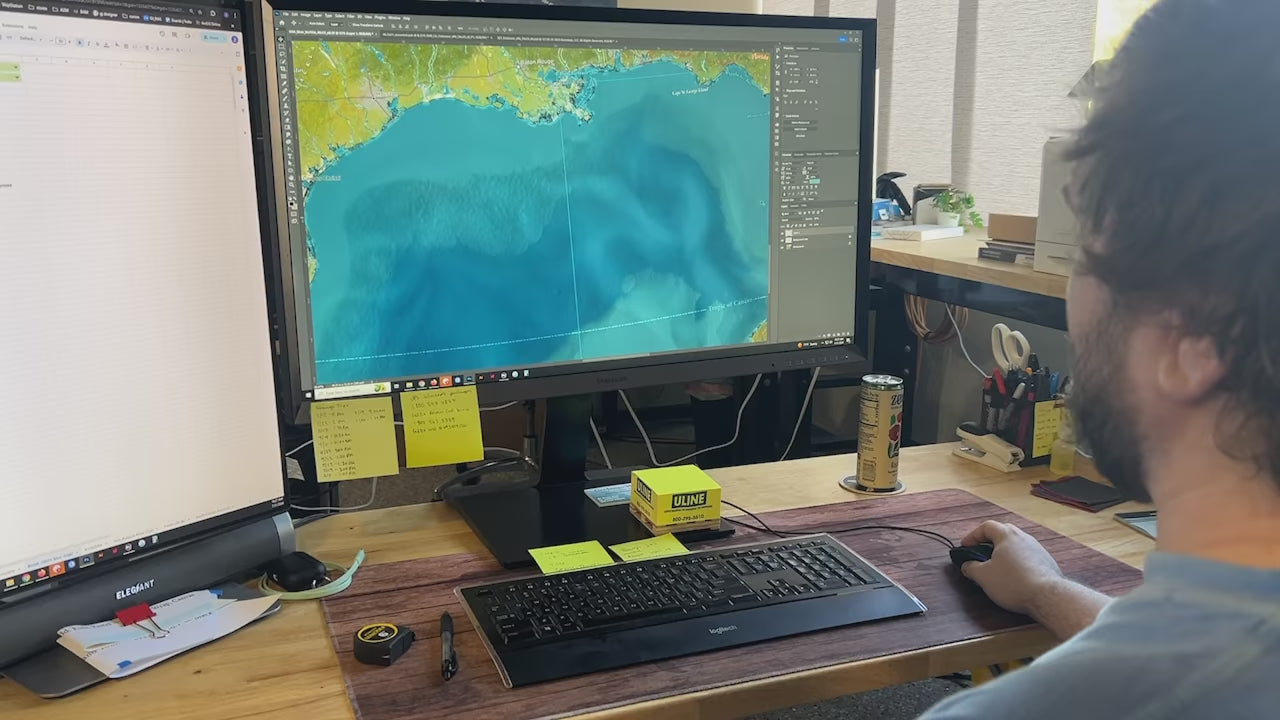Known for its unique architecture and large amount of bridges, Pittsburgh is celebrated for its art, food, history, and culture. Bring "Steel City" to life with our customizable Push Pin City Map. Choose between various frames, styles, and custom titles. The impressive details of roads, trails, railways, rivers, and more will give you a new perspective of your favorite city.
Choose Your Style:
Our City Maps come in 5 styles: Toner, Pencil, Night, Retro, and Ganymede.
Toner - This map is our classic black and white style. It is crisp, clean, and the perfect addition to any space.
Pencil - Our etched, pencil design is one of our top-sellers. The beautiful ocean pattern and neutral color palette complement any of your favorite cities.
Night - This style showcases the nightlife of your favorite city. The variation of grey tones will complement any home.
Retro - This option will add the perfect pop of color to any space. The retro map view makes water features, parks, and roadways pop.
Ganymede - Named after Jupiter’s largest moon, this style is bound to make a statement in any spot. The muted blue and teal tones give this map a unique look that showcases the different streets, topography, and more.
About Our City Maps:
At GeoJango, we are experts in GIS mapping and developing products of the highest quality display. Each of our five unique styles is designed by programming thousands of layers within each map. Each map art print is created using open street maps, a comprehensive world-wide database of roads, streets, and other features. In turn, our maps are the most accurate, high-quality, and stylish on the market.
Optionally Customize Your Map:
Make the map genuinely unique to you by creating a custom title and subtitle. Be creative and write why Pittsburgh is unique to you.
Construction: Our Framed City Maps are printed on high-quality Photo Satin Paper and can be used with push pins. We mount the map on a high-quality pin board using heavy machinery for a bound that will last.
Applications: This is the perfect addition as hospitality wall art for hotels, vacation rentals, local businesses, and more! Decorate your office, home, apartment, or vacation home with the city you live in, one you’ve traveled to, or as inspiration for your next adventure.
A Perfect Gift for: Big-city goers, history lovers, avid travelers, and geography enthusiasts. This is ideal for a graduation, wedding or move-in gift for everyone!
Guarantee of Quality:
We stand behind our work and guarantee the highest level of quality and construction. Contact us if you have any problems with your map, and we’ll coordinate to ensure you are happy with the order.
